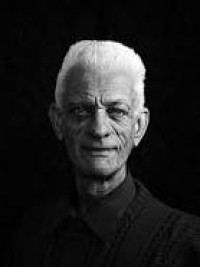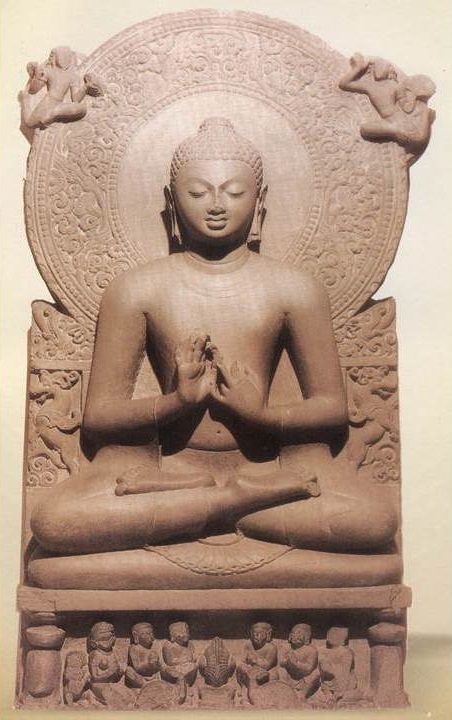Scholars and their thoughts on life
Tuesday 03 May 2016
Following on from my last blog, (The Human Condition) where I attempt to write from my personal insight and view into reality and truth, (helped with the Buddha’s insight and teachings), I would like to share the views of some notable intellectuals like Andre Gede’, Schopenhauer, Nietzsche and Oscar Wilde’ as reported in Robert Dessaix’s insightful book ARABESQUES.
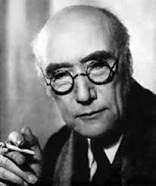 Andre Gede’ wrote in his diary near the end of his life,
Andre Gede’ wrote in his diary near the end of his life,
"I have never succeeded in taking this life seriously”. “It’s not that I have ever been able to believe (as far as I remember) in eternal life, (I mean an afterlife) but rather I believe in another facet to this life, which escapes our senses and of which we can only be very imperfectly aware … An indefinable impression of being “on tour” and of playing in makeshift sets with cardboard daggers”.
He went on to say,
“I surprised myself yesterday wondering with complete seriousness if I was still alive.” “The outer world was there and I was looking at it with marvellous clarity, but was it really I who was perceiving it?”
Robert Dessaix reflects on these thoughts from Andre Gede’ by saying that he has been seized by a similar perception many times,
“You can be sitting reading a book, or making soup and it strikes you like a flash of lightning through an open window; without warning and for no apparent reason you feel like an absence, not a presence, like a ventriloquist’s doll”. But who in that case is the ventriloquist?”
Gede’ also mentioned that Schopenhauer --- had remarked,
“The young if metaphysically inclined, are likely to see themselves as the ventriloquist, animating the entire universe. Nothing exists except as a function of myself.”
Gede’ commented on Schopenhauer thus at the age of eighteen, but later the question was turning around him; “without my help everything existed and continued to be … I absented myself, it seemed to me that I was no longer there and my disappearance had passed unnoticed.”
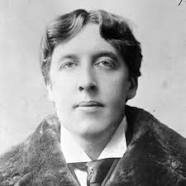 Robert Dessaix writes attributing Gede’s conditioning, as it was, to be partly from Oscar Wilde. He was explaining the curious mix in Gede’ of early protestant conditioning, that he kept in his life through his generally happy, but unconsummated marriage with his very religious wife Madeleine and his explorations into paganism.
Robert Dessaix writes attributing Gede’s conditioning, as it was, to be partly from Oscar Wilde. He was explaining the curious mix in Gede’ of early protestant conditioning, that he kept in his life through his generally happy, but unconsummated marriage with his very religious wife Madeleine and his explorations into paganism.
Robert Dessaix says that Oscar Wilde knew Andrea Gede’ when he was young. He said Oscar Wilde was an influential figure and had left some remarkable legacies. Amongst many challenging things that Oscar Wilde said, was that ---
“He had put all his genius in to his life and that he had only put his talent into his works. He had also remarked that there is no true face beneath the mask, no self to be true to”.
According to Robert Dessaix, the young Andrea Gede was seduced by Wilde, and the morning after had felt spiritually annihilated by him.
“Since Wilde, he had felt he hardly existed at all. He had to ward off Oscar as a “diabolical familiar” after that winter of 1891/2. He travelled above it all after that, in search of Pan, a paganism (or Nihilism) to escape Christianity”.
According to Dessaix his wife became a person like a confessor, someone to live in confession with!
My take on all of this is to acknowledge the duality of “God and Atheism” a “creator and no thing” that seems to be present in his mind but also a dalliance with what the Buddha would call the Middle Way.
THOUGHTS ON FREEDOM
These are some brilliant examples Robert Dessaix, mentions in a discussion about freedom, happiness, and what it is! He questioned the meaning of happiness by saying! --- “Is it pleasure in self-nature or Gods nature?”
He then said that "Camus (The Author) came up with the perfect definition, even though he committed suicide”. He said the character, “Clamence --- in his novel “The Fall” says --- “I took pleasure in my own nature and we all know that that’s what happiness is”.
Robert Dessaix describes this as a view without morality, or the self-satisfied and self-serving Western view of things. Then, on the other hand he lays out what his friend Yacoub said, even though Yacoub says he does not believe in God, but neither is he an atheist. (So presumably his statement is attributed to a Muslim perspective!)
In defining happiness Yacoub says,
- “We Orientals want only the right to take pleasure in God’s own nature.”
I can see the way these views play out in the world and my personal thoughts are that because Muslims try to interpret Gods pleasure so righteously, they cannot and will not accept human (particularly western) behaviour in general, especially when they see it as unwholesome, and yet they can be so unaware of this behaviour (unseen) in themselves! Hence the millennium battle continues!
My thoughts on the question of Freedom!
When we can acknowledge our conditioned being, we can start to see that the way we think and operate in the world is all conditioning. We can then start to see that when we act out this conditioning we are not free. Conditioning enters us either passively when we open to receive suggestion or when we are dissociated, so it goes in hypnotically. Conditioning is learned from our families, peer groups, schools, governments etc. Then there are all of the major world movements and influences including Religions, different fads and lifestyle choices. It is this conditioning that allows us to hold the world up and to believe in it, in the way we are conditioned. So the thought that we are free is really just a confabulation! This insight shows why the Buddha’s structured his teachings for us to practice to see our conditioning and practice to go beyond it.
Further thoughts on Freedom.
Robert Dessaix comments --- Gede’ said ruefully one day in one of his purposeful protestant moods that
“To free yourself is nothing --- it’s being free that’s hard”. It’s when I am freest that I am furthest from happiness.
 Nietzsche also thought that
Nietzsche also thought that
“Being free was difficult, but usefully so it sorted sheep from the goats”. “The man who has become free spurns the contemptible sort of well-being dreamed of by shop keepers, Christian’s, cows, women, Englishmen and other democrats. The free man is a warrior”.
I see the Buddha as being such a free warrior. A rebellious man who could cut through all kinds of dreams humanity has of making the world right, because the structures to achieve such things end up being fetters that rob us of our freedom. Freedom is beyond any conditioning.
Random Quotable Quotes I came across while writing this piece.
Robert Dessaix was commenting on Andre Gede’s writing style as:
“Early Renaissance Satirical Farce, saying that if he had been English he’d have probably written nonsense literature like Lewis Carroll or Edward Lear”.
Tristram Shandy also sprang to his to mind.
“The English don’t discharge their panic over the meaningless of life or Gods non-existence by being clever, but be being stupendously silly”.
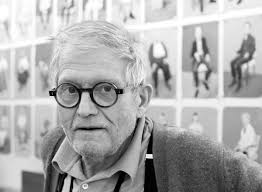 Quote by Artist David Hockney
Quote by Artist David Hockney
“A camera’s see surfaces”.
“We see Space”.
“Its space that is the thrill”.
The Buddha
How well did you live life. How well did you love How well did you let go |
|
